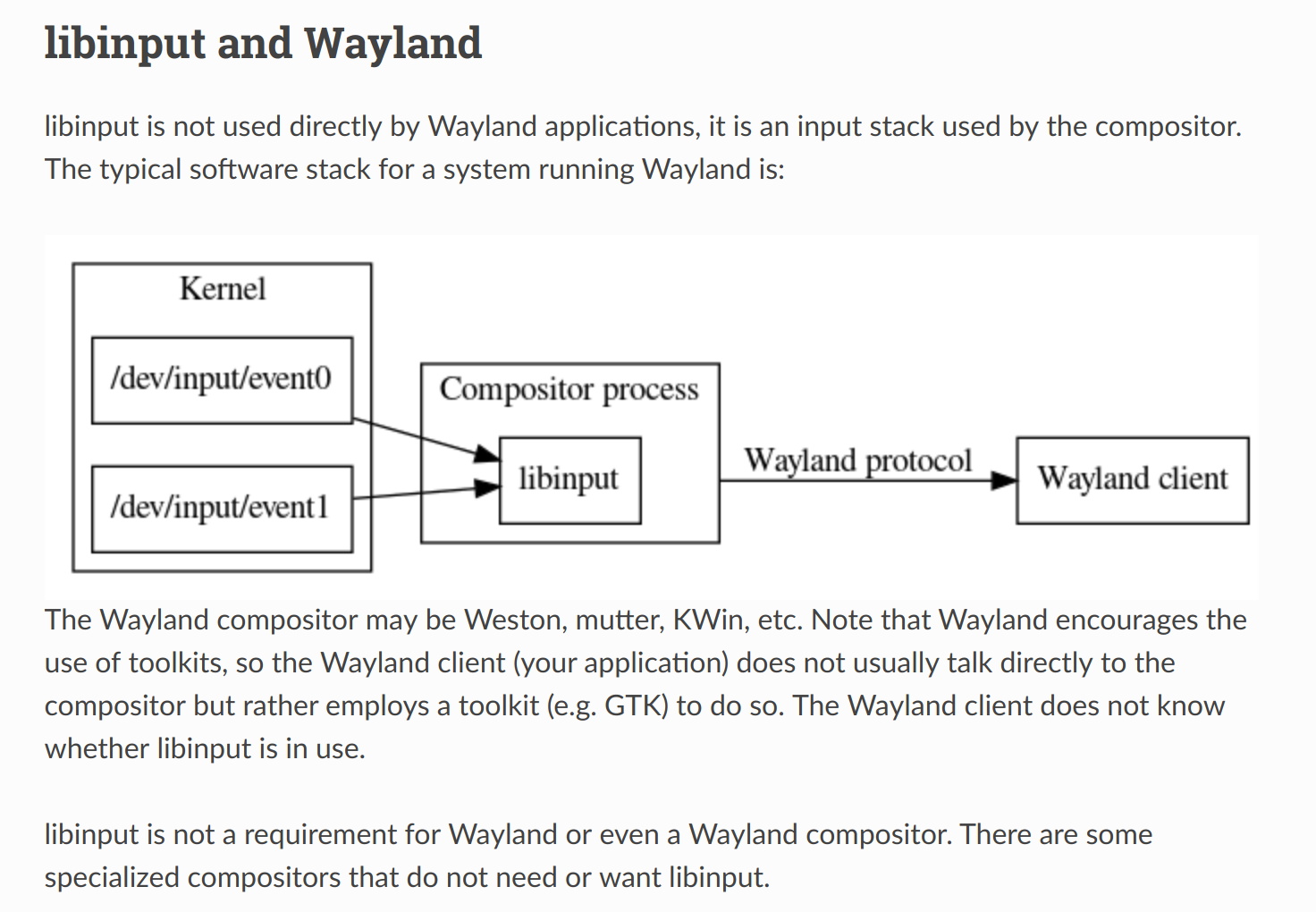linkWayland
Wayland is a computer protocol that specifies the communication between a display server and its clients, as well as a reference implementation of the protocol in the C programming language.[8] A display server using the Wayland protocol is called a Wayland compositor.
Thus, one may suppose that each OS is a Wayland compositor?
linkWayland compositors

linkApplicable terms
KMS: Kernel mode setting, exists to [tbd]
EGL: Can't understand from context
evdev: Per Wikipedia on evdev:
For Weston/Wayland, the stack would look like this:
Linux kernel → libevdev → libinput → Weston → Wayland client
Since version 1.16 the xorg-xserver obtained support for libinput:
Linux kernel → libevdev → libinput → xf86-input-libinput → X server → X client
Weston: A reference implementation of Wayland that emphasizes correctness
There are three types of compositors:
system
session
embedding
Looks like we're probably dealing with a system compositor. Given that embedded is for tiny systems, and session compositors end upon logout.
Libinput handles input devices for multiple Wayland compositors and also provides a generic X.Org Server input driver. It aims to provide one implementation for multiple Wayland compositors with a common way to handle input events while minimizing the amount of custom input code compositors need to include.
And
As GNOME/GTK+ and KDE Frameworks 5[64] have mainlined the required changes, Fedora 22 will replace X.Org's evdev and Synaptics drivers with libinput.[65]
The Weston code for handling input devices (keyboards, pointers, touch screens, etc.) was split into its own separate library, called libinput, for which support was first merged in Weston 1.5.[66][67]
With version 1.16, the X.Org Server obtained support for the libinput library in form of a wrapper called xf86-input-libinput.[68][69]
Alternately, from "what is libinput"

linkBackwards compatibility
With version 1.16, the X.Org Server obtained support for the libinput library in form of a wrapper called xf86-input-libinput.[68][69]
Doesn't need to be supported, presumably.
linkWhy Wayland?
It's the only system to allow monitor pixel scaling? (For high res laptop monitors)
linkSupport
Per omgubuntu, Ubuntu defaulted to Wayland in 17.10, but reverted to X.org for 18.04 "owing to it being a long-term release." Wayland is still installed by default in 18.04, and can be selected from the login screen.